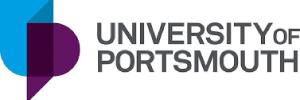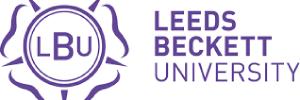
Find out how to arrange additional academic support with Disability Advice.
You can arrange to discuss your learning needs with a Disability Officer. Where applicable, the Disability Officer can assess what reasonable adjustments are necessary while you study.
Background
Disability Advice offers advice and guidance on any disability-related matters within our University. Additional academic support is available to disabled students where they experience difficulties that impact on their ability to access the campus, curriculum, teaching, learning, assessment or any other university service.
Academic support is assessed on an individual basis to ensure it is appropriate and enables the student to meet the required learning outcomes. Some examples of academic support other students have found useful are:
- Exam adjustments (e.g. extra time)
- Assistive technology (e.g. recording software)
- Specialist 1:1 support (e.g. mentor)
The team can advise on disability-related queries throughout your studies, including before you start. The team are responsible for coordinating additional academic support, including reasonable adjustments.
Under the Equality Act 2010, universities have a duty to make reasonable adjustments where a student may be placed at a disadvantage in comparison to their non-disabled peers. It is important that you contact Disability Advice as soon as possible if you have any condition that may impact on your ability to access the campus, curriculum, teaching, learning, assessment or any other university service.
Reasonable adjustments might relate to:
- Exams (e.g. extra time)
- Lectures (e.g. access to handouts and lecture slides in advance of taught sessions)
- Reading and research (e.g. 1:1 Study Skills or assistive technology tuition, library support)
- Note taking (e.g. permission to record lectures)
- Access to buildings (e.g. appropriate timetabling)
- You will also be able to visit the University before your course starts, to gain a feel for where you will be based throughout your studies.
- You (and your chosen supporter) will be invited to the University's new Transition Days, which include information and practical sessions helping you to prepare well for the transition, and opportunities to meet other new students.
The Disability Officer can advise you of the process for applying for the Disabled Students’ Allowance (DSA). If you are not eligible for DSA they will advise you on alternative options.
We would encourage you to contact Disability Advice as soon as possible in order to talk about the additional academic support available and ensure appropriate provision is in place when you start your course.
How could this affect me?
The Disability Advice team are responsible for coordinating your additional academic support including reasonable adjustments where appropriate. Reasonable adjustments are based on your individual learning needs and so your involvement in this process is important.
If you decide not to contact the team prior to starting your course, there may be a delay in the academic support you receive.
You are still welcome to contact them at any point throughout your studies.
A current student reflects on the help they received from Disability Advice
"Through an initial meeting before joining the university, I was told that I was entitled to additional support to make my time at university easier and more enjoyable. The first step for this was to have a Disabled Student Allowance (DSA) needs assessment. Due to not having my autism diagnosis until a few months before I turned 18, the paperwork report/diagnosis had not come through yet, but the team were very accommodating. They still gave me a copy of the audio notetaking software my needs assessment would have given me. They also gave me a provisional 10 hours mentoring while they waited for my report to come through. After the DSA needs assessment itself (a short meeting discussing how autism effected my daily life) I was then granted additional software and mentoring hours."
What to do next?
Contact the Disability Advice team as soon as possible.
Practical tips
Contact the Disability Advice team as soon as possible.
Email: disabilityadvice@port.ac.uk.
Telephone: 023 9284 3462.
Disability Advice is based at University House, Winston Churchill Avenue, Portsmouth, Hampshire, PO1 2UP.
Visit our maps and directions page to view our campus map.
Questions to think about
It might be useful to think about the following issues before you contact the team:
- how you would like to describe your autism and what you think would be useful to share with your tutors
- any support you have received in the past, what has worked well and what hasn’t worked for you
- how you plan to travel to university
- your experience of teaching sessions, what helps you to gain an understanding of a new topic or task
- how you have found note taking and researching for assignments
- how you have found different types of assessments in the past, e.g. exams, essays and presentations.
- how you feel about group work, placement and practical tasks
Additional information and links
Disability Advice also work closely with Autism Hampshire and Clearlinks who can provide specialist mentoring support in the City of Portsmouth. This can be offered to students with Autistic Spectrum Conditions and can enhance their independent learning. A mentor can offer strategies to help a student with their study (e.g. organisation and time management). Students will normally apply for the Disabled Students’ Allowance to fund this additional support.
Autism Hampshire also offer some pre-sessional support prior to arrival. Referrals need to be made by Disability Advice and so it is important you contact them as soon as possible after accepting an offer.
If you decide that you are going to attend a different University we would recommend that you contact the Disability Advice team at your chosen university as soon as possible.
Telling the University about your autism | Autism toolkit
Arranging a Study Needs Assessment | Autism toolkit
Arranging reasonable adjustments | Autism toolkit
This toolkit is an adaptation of the Autism&Uni project led by Marc Fabri from Leeds Beckett University, under license CC BY 4.0. The original Autism&Uni project was funded with support from the European Commission with partners in the UK, Finland, the Netherlands, Poland and Spain. For more information about this project please visit the Autism&Uni website.








